Uncovering the real story of Valeria Messalina, the infamous Roman empress, presents a fascinating challenge. Was she a power-hungry seductress, a protective mother, or a victim of her time? Delve into the depths of ancient Rome as we unravel the truth behind her scandalous reputation, examining historical sources and their reliability, and reevaluating her complex legacy.
Short Summary
- Valeria Messalina rose to power through her family ties and marriage to Emperor Claudius.
- Her scandalous behavior, political intrigue, and secret marriage resulted in her downfall.
- Ancient sources should be critically evaluated for biases when reevaluating Messalina’s legacy as a protective mother who was a victim of her time.
The Rise of Valeria Messalina
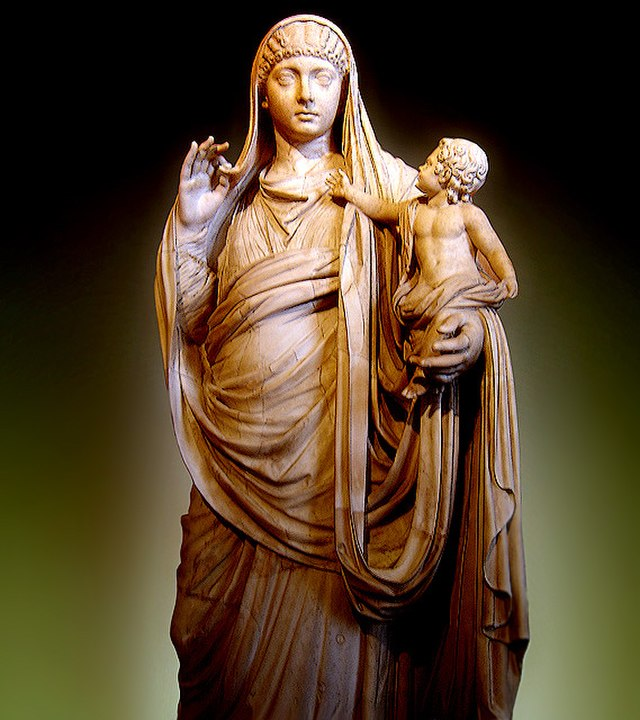
Valeria Messalina’s rise to power was undeniably linked to her connections to the imperial family and her strategic marriage to Emperor Claudius at a young age. As a member of the Julio-Claudian dynasty during the early Roman Empire, she wielded considerable influence and used it to her advantage in the treacherous world of Roman politics.
Messalina coveted her position in the imperial court and, leveraging her family ties, she won the security she desired.
Family Ties
Messalina’s second cousin was none other than the infamous Emperor Caligula, and her parents were both members of the imperial family. This connection to the Julio-Claudian dynasty undoubtedly played a significant role in her rise to power, as it provided her with a direct link to the most influential family in ancient Rome.
At the tender age of 14 or 15, Messalina married her second cousin, Claudius. This marriage further solidified her position within the imperial family and paved the way for her to become Empress of Imperial Rome, a title that would come to define her legacy.
Marriage to Claudius
Messalina married Claudius around 38 or 39 AD, prior to his rise to power. This union played an essential role in Claudius’s ascension to supremacy. Messalina, who married Claudius when she was just a teenager, would prove instrumental in her rise to prominence as the wife of Emperor Claudius and the mother of his children, Britannicus and Claudia Octavia.
Her marriage to Claudius connected her to Emperor Tiberius, as Claudius was Tiberius’ grand-nephew. This further strengthened her position in the imperial family and allowed her to wield considerable power during Claudius’ reign.
The Scandalous Life of Empress Messalina
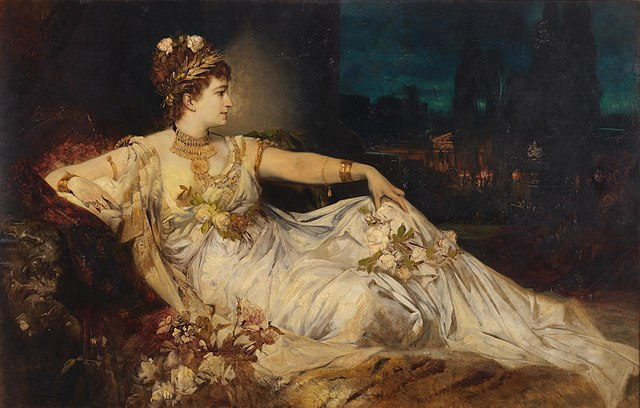
Empress Messalina’s life was rife with scandal, from her numerous affairs to her secret marriage that ultimately led to her downfall. Her reputation as a licentious and manipulative woman was well-known, both during her lifetime and in the centuries that followed.
Her actions were driven by her desire to protect her children’s position in the imperial line and prevent anyone from trying to displace them. However, her methods, which included engaging in political intrigues and forging alliances through her affairs, would ultimately lead to her demise.
Affairs and Manipulation
Messalina’s manipulative nature and numerous affairs were a key part of her scandalous reputation. Ancient authors reported that she visited brothels, had intimate relations with numerous people in the imperial palace, and even competed with Rome’s leading prostitute in a sexual endurance contest, which she won.
Her affairs were not purely driven by lust, however. It is believed that she used these liaisons to forge political alliances and maintain her power. As a result, her infamy was not just a product of her sexuality, but also her cunning and ambition.
The Secret Marriage
While tiberius claudius caesar germanicus Claudius was away, Messalina secretly married Gaius Silius, a consul designate. This move would later be considered treasonous, as it directly challenged the authority of her husband, the Roman emperor.
When news of the secret marriage reached the imperial court, its members perceived it as a threat to Claudius’ life and their own positions. The ensuing scandal would prove to be the catalyst for Messalina’s downfall.
The Downfall of Messalina
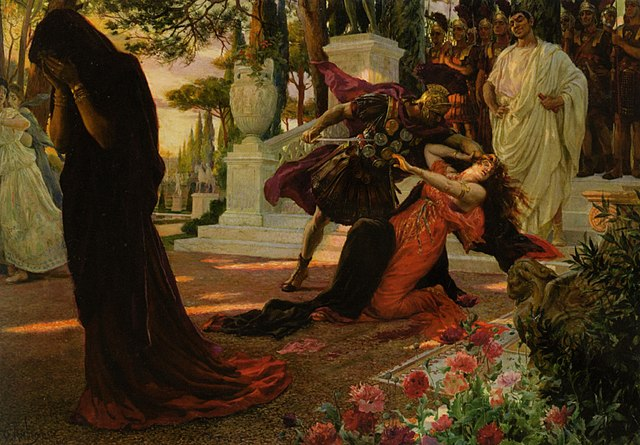
Messalina’s downfall was marked by her ill-fated plot against Claudius and her subsequent execution. Her actions, driven by ambition and a desire to protect her children’s interests, would ultimately result in her erasure from history.
The Senate, eager to distance themselves from the scandalous empress, ordered her memory to be erased from public records and monuments, a practice known as damnatio memoriae. This would ensure that her name would be forgotten, leaving only her scandalous reputation to be remembered by future generations.
The Plot Against Claudius
Messalina and her secret husband, Gaius Silius, plotted to overthrow Claudius and seize power. Their plan was discovered and thwarted, however, and the conspirators were quickly apprehended.
The discovery of the plot led to the execution of both Messalina and Silius. Claudius, devastated by the betrayal, would remarry shortly after her death.
Execution and Erasure
Following her execution, the Senate attempted to erase Messalina’s memory from history. Coins featuring her image were defaced, and her name was removed from public records and monuments.
Roman Emperor Claudius, eager to move on from the scandal, quickly remarried Caligula’s sister Agrippina. This would mark the final chapter in the tumultuous life of Empress Messalina.
Ancient Sources and Their Reliability
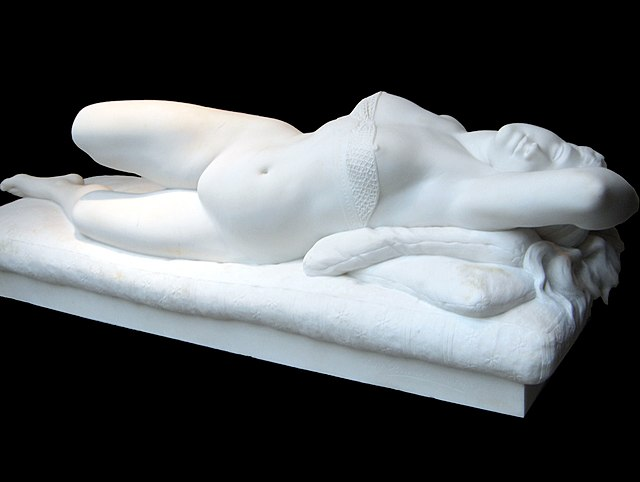
The reliability of ancient sources on Messalina’s life is questionable, as they may have been influenced by bias and Roman gossip. Ancient authors such as Cassius Dio, Juvenal, Suetonius, and Tacitus all paint a vivid picture of the empress, but their accounts are not without discrepancies and potential inaccuracies.
As we examine the historical record, it is important to keep in mind the potential biases and limitations of our sources. This will enable us to form a more accurate and nuanced understanding of the enigmatic figure that was Empress Messalina.
Seneca’s Possible Bias
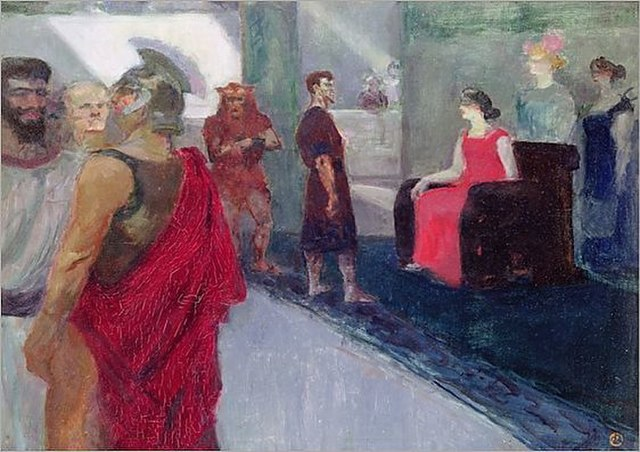
Seneca the Younger, one of the main sources on Messalina’s life, may have held a grudge against her due to her role in his banishment. As a prominent Stoic philosopher and political advisor to Emperor Nero, he would have had ample opportunity to influence the historical record.
This potential bias should be taken into account when evaluating Seneca’s accounts of Messalina’s life. His portrayal of the empress may have been colored by personal animosity, which could have led to a distorted view of her actions and motivations.
The Influence of Roman Gossip
Roman gossip and the tendency to exaggerate stories may have contributed to the scandalous tales surrounding Messalina’s life. In ancient Rome, gossip was a powerful tool used to discredit adversaries and rivals, and Messalina was no exception.
As we reassess her legacy in the context of Roman history, it is important to consider the role of Roman gossip in shaping our understanding of her life. By separating fact from fiction, we can begin to see a more complex and multifaceted figure beneath the layers of scandal and rumor.
Messalina in Art, Literature, and Film
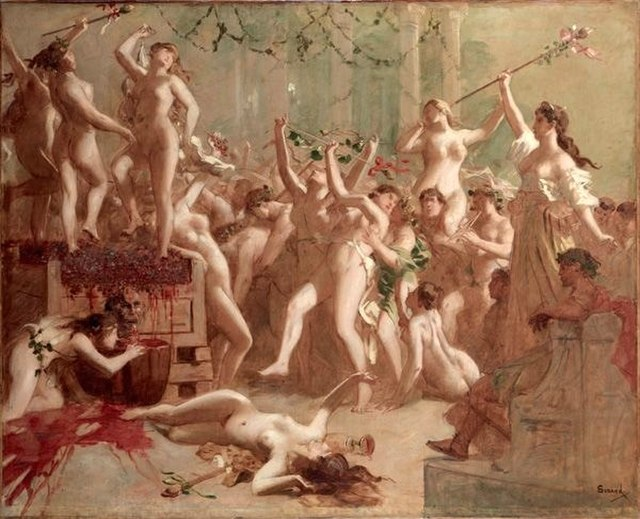
Empress Messalina has been depicted in various forms of art, literature, and film, often highlighting her scandalous reputation. From ancient texts to modern novels and movies, her story continues to captivate audiences and spark debate about the true nature of her character.
These portrayals, although sensational and intriguing, should be viewed with a critical eye. They offer a glimpse into how different artists, writers, and filmmakers have interpreted her life, but they do not necessarily provide a definitive account of who she was or what motivated her actions.
Literary Depictions
Literary works such as “The tragedy of Messalina, Empress of Rome” and “I, Claudius” portray Messalina as a manipulative and promiscuous figure. These depictions, while fascinating, may not accurately represent the true nature of her character.
It is important to remember that these works, both ancient and modern, are subject to the biases and limitations of their authors. As we explore Messalina’s life through the lens of literature, it is crucial to approach these sources with a critical and discerning eye.
Cinematic Interpretations
Films like “Messalina” (1981) and “I, Claudius” (1976) further popularized the scandalous image of Messalina. These cinematic portrayals often emphasize her licentiousness and cunning, perpetuating the sensationalized view of her character.
As with literary depictions, it is important to consider the biases and creative liberties taken by filmmakers when evaluating these portrayals of the infamous empress.
Reevaluating Messalina’s Legacy
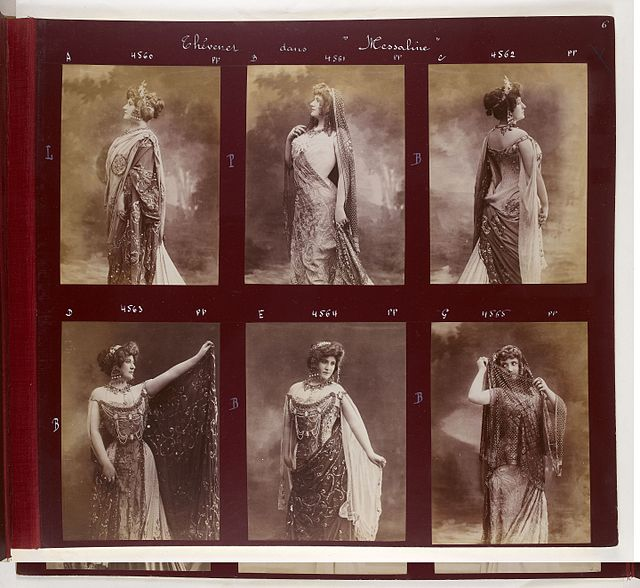
Reevaluating Messalina’s legacy reveals a more complex figure who may have been a protective mother and a victim of her time. While her scandalous reputation is well-known, it is worth considering the motivations behind her actions and the societal pressures she faced as a woman in ancient Rome.
By examining her life through a more nuanced lens, we can gain a deeper understanding of the forces that shaped her character and the choices she made. This, in turn, allows us to form a more balanced view of her legacy, one that acknowledges both her strengths and her flaws.
The Protective Mother
Messalina’s actions may have been driven by a desire to protect her son’s position in the imperial line, rather than pure malice. Her devotion to her children and her determination to secure their future may have played a significant role in her decision-making, even if it meant trying to displace Messalina’s children from other relationships.
This aspect of her character is often overlooked in favor of her more scandalous exploits, but it is an important factor to consider when reevaluating her legacy. By recognizing her role as a protective mother, we can gain a more complete understanding of her motivations and actions.
A Victim of Her Time
As a woman in ancient Rome, Messalina may have been unfairly targeted and victimized due to her gender and the political climate of the time. Her scandalous reputation and the sensational stories that surrounded her life may have been exaggerated or even fabricated to discredit her.
By considering the societal expectations and pressures she faced, we can begin to see her as a more complex and nuanced figure, one who was shaped by the world in which she lived and the challenges she encountered.
Summary
Uncovering the real story of Empress Messalina requires delving deep into the complexities of her life and the world in which she lived. From her rise to power and scandalous exploits to her ultimate downfall, her story is one of ambition, intrigue, and tragedy. By reevaluating her legacy and considering the potential biases of ancient sources, we can gain a more nuanced understanding of this enigmatic figure and the forces that shaped her life.
Frequently Asked Questions
What is Messalina famous for?
Messalina Valeria is renowned for being the third wife of the Roman emperor Claudius and her licentious behavior. She was also infamous for her thirst for power and initiating murderous court intrigues.
Did Claudius love Messalina?
Despite the mounting evidence of her infidelity, Claudius still showed love for Messalina by asking to speak to her in the morning and not executing her. Narcissus tracked her down to the Gardens of Lucullus, where she had taken refuge with her mother.
Thus, it can be concluded that Claudius did love Messalina.
What happened to Statilia Messalina?
Statilia Messalina, the third wife of Nero, survived his death in 68 CE but was prevented from marrying Marcus Salvius Otho the following year due to his defeat at Bedriacum and subsequent suicide.
Otho had been declared emperor by his troops in January 69, but his reign was short-lived. He was defeated by Vitellius’ forces at Bedriacum in April and committed suicide shortly afterwards. This prevented Statilia from marrying him and she was forced to remain a widow.
Was Messalina a protective mother?
Yes, Messalina was a protective mother and was devoted to her children, taking steps to ensure their position in the imperial line.
She was known to have taken steps to ensure that her children were in line to inherit the throne, such as arranging marriages and making sure they were well-educated. She also took steps to protect them from any potential threats.
What role did Roman gossip play in shaping Messalina’s reputation?
Roman gossip undoubtedly played a role in shaping Messalina’s reputation, by sensationalizing and exaggerating stories about her.
However, it is important to remember that Messalina was a real person, and that her actions had real consequences. She was a powerful woman in a male-dominated society, and her behavior was seen as harmful.
